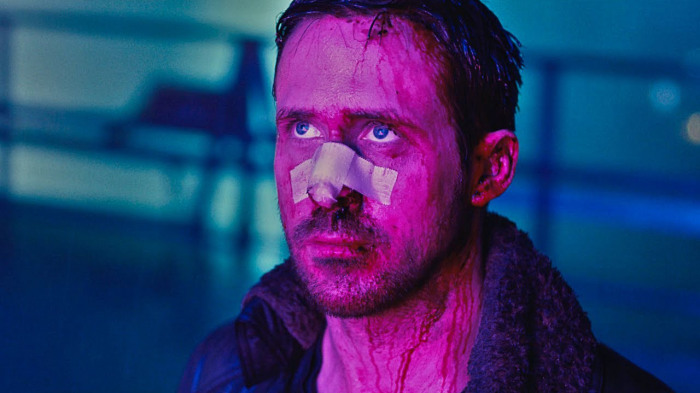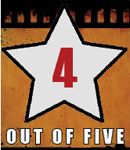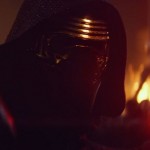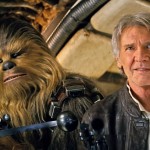

Clocking in at a colossal undertaking of 163 minutes, nobody would confuse Blade Runner 2049 as brisk, yet I would've gladly sat through a second viewing had it queued up again right after the credits. If the sign of a great film is that I want to watch it again as soon as possible, then Denis Villeneuve's (Sicario) sequel to the 1982 sci-fi classic is indeed a great film, its own classic even; but it's also challenging, and not necessarily in the ways I'd hoped.
Stylistically, from the booming score to the meticulously detailed production design, 2049 establishes itself the worthy successor to its forebearer, checking all of the requisite boxes (moody synth beats, bleak future, badass coats) on its way to (no bullshit) outright achieving the look and feel of the original. The fact that 2049 measures up at all to the style and mood of the original, itself a benchmark in production design, is a staggering victory in its own right. The painstaking attention is apparent in every single frame. When the film goes quiet or slows down there's no shortage of visual flair to fixate on.
On the narrative side, 2049 hits a few snags. For a film that's seventeen minutes shy of three hours, you'd hope 2049 allows itself plenty of time to tie up loose ends. This is, sadly, not the case. Several characters and subplots either disappear or are left underserved by the end of the film. Ambiguity is hardly a bad thing in the world of Blade Runner, and I'm being purposely obtuse on account of spoilers, but there are at least two major supporting characters that just completely disappear by the film's finale. And as these were characters who had vested interest in how things shake out, I'm dismayed that their respective arcs were left unresolved.
I think it speaks to a greater issue with 2049, an ironic one considering Blade Runner '82 arguably suffers from the exact same thing — a movie this front-loaded with ideas simply can't service them all. To that effect, 2049 opens a lot of doors without ever fully walking through them. This is a film concerned with asking questions, not so much answering them. Some of those questions lend themselves to spirited philosophical debate and need no answer: questions about weighty subjects like love and AI and ego death. I'm all for a Blade Runner movie that explores those concepts on an open-ended basis. No, where I take issue is with elements like the android uprising that's oh-so-briefly suggested in the film. If Blade Runner 2049 is going to introduce entire subplots (like ass-kicking android revolutionaries of the mad-as-hell-and-not-going-to-take-it-anymore variety) only to never revisit those ideas again, then what was the point? What was served in teasing me this awesomeness only to take it away? This is but one purposely vague example. There are others.
Let's talk cast. Ryan Gosling's performance as Agent K is inspired in its restraint. Gosling's no stranger to the role of "strong, silent type" (see Drive). The part of K allows him the added benefit of going completely off the rails when the script necessitates. Gosling's performance, while mostly measured, is exactly what's needed of him. Of the non-Deckard supporting cast, Mackenzie Davis and Ana de Armas fare best. I don't want to spoil Armas' character, but hopefully this amounts to a star-making turn. Her performance requires her to wear a few different hats throughout, but it suggests a wealth of range out of the young actress. Her character is the logical next step in the world of Blade Runner and I'd be remiss if I didn't see her role as something of a missed opportunity. This movie finds its heart in the scenes between Gosling and Armas, only for the script to keep pulling things in different, less interesting directions.
Which brings us to Harrison Ford, aka Deckard, aka the OG Blade Runner. Warner Brothers has politely requested I not delve too heavily into the subject of Deckard so as not to spoil certain plot points. I'm happy to oblige, before adding a few addendums. First, if you had questions about Deckard's nature coming into 2049, this movie is happily content not answering those for you (personally, I think the answers have been there all along, and viewing 2049 with that mindset only solidified my own views). Second, speaking strictly in terms of the quality of Harrison Ford sequels, I'm happy to report Blade Runner 2049 is more Force Awakens than Crystal Skull. Like, a lot more. So be happy in that knowledge.
It's too early for me to know whether or not I'm in love Blade Runner 2049. For now, I'm content being in serious like with it. Villeneuve continues one hell of a run with this, arguably his most challenging feat. All of the elements come together to create a worthy sequel, one that builds on the vaunted mythology without ever crushing it. Blade Runner's dreamy futurescape has again nestled its way into my brain, like a distant memory implanted by someone else. I may not have asked for it, but I'm damn glad it's there.











